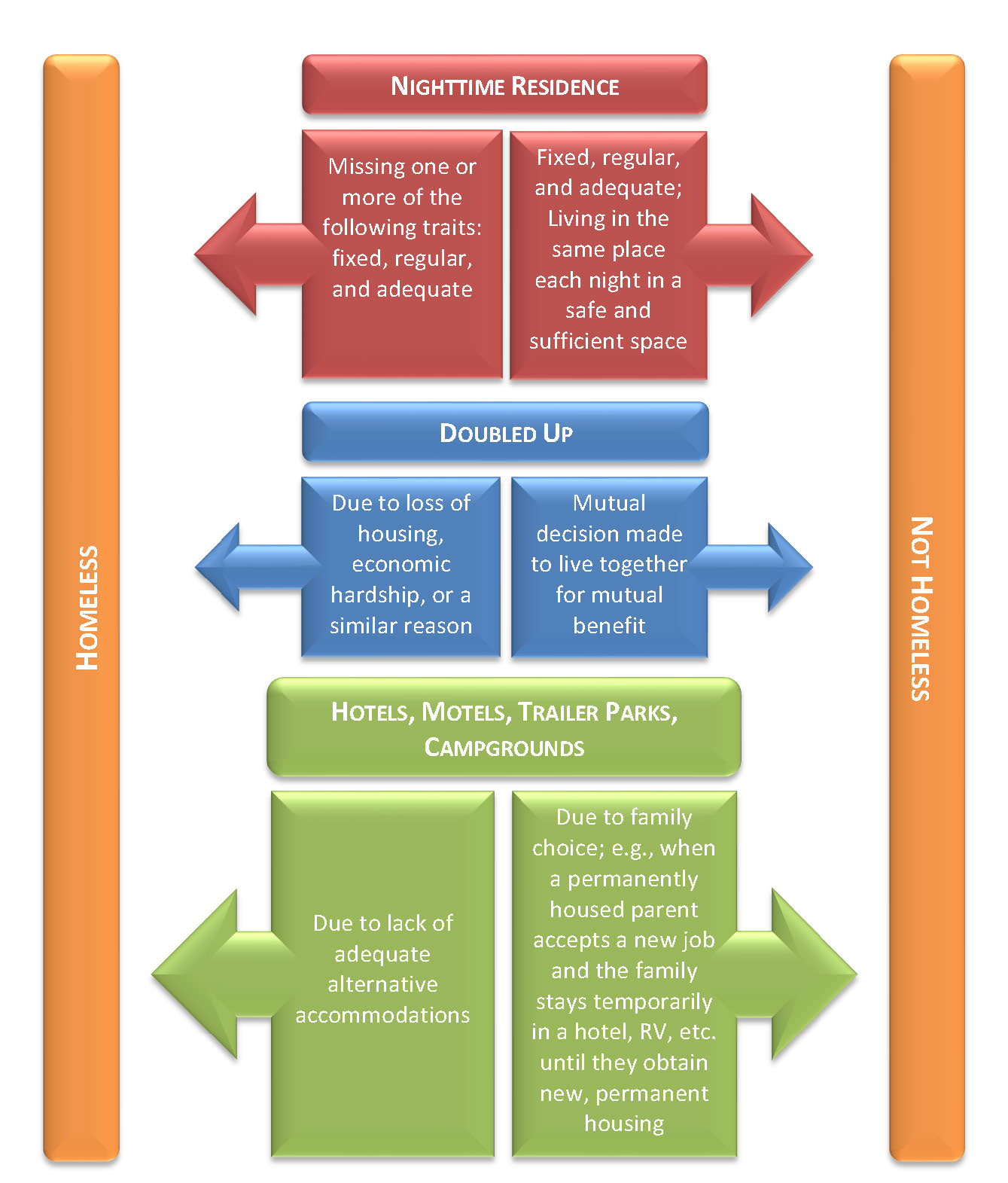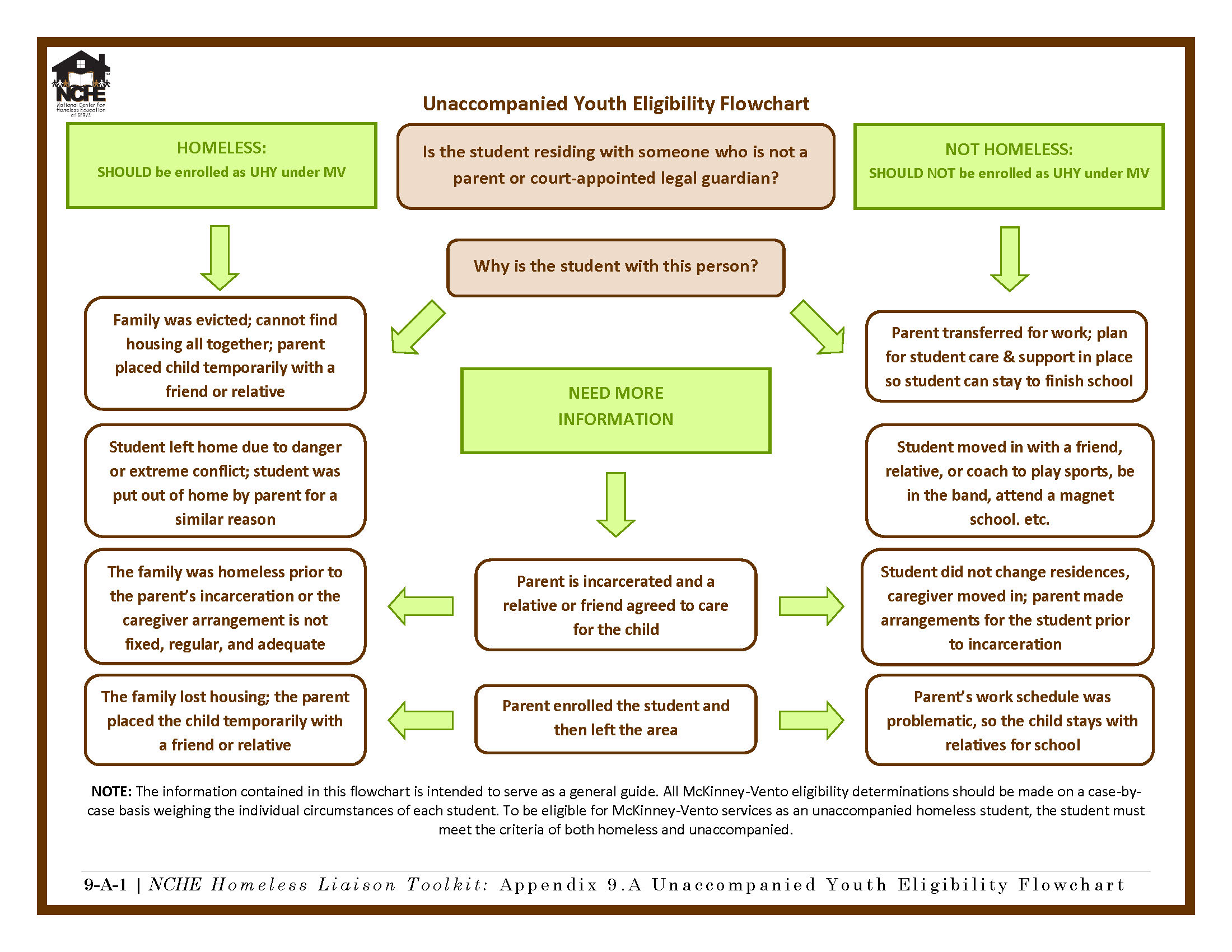BIE McKinney-Vento Homeless Assistance Act Information
EDUCATION AND HOMELESSNESS
The purpose of the Title IX, Part A Education for Homeless Children and Youth is to address educational barriers and challenges created by homelessness by guaranteeing homeless students the right to enroll and attend school, and to provide the support needed for school success.
BASIC MCKINNEY-VENTO RIGHTS
McKinney-Vento eligible students have the right to:
-receive a free, appropriate public education;
-enroll in school immediately;
-continue attending the school of origin, or enroll in the local attendance area school if attending the school of origin is not in the best interest of the student or is contrary to the request of the parent, guardian, or unaccompanied youth;
-receive transportation to and from the school of origin, if requested by the parent or guardian, or by the local liaison on behalf of an unaccompanied youth; and
-receive educational services comparable to those provided to other students, according to each student’s need.
UNDERSTANDING THE DEFINITION OF HOMELESSNESS
Pursuant to McKinney-Vento, the term “homeless children and youths”-
- means individuals who lack a fixed, regular, and adequate nighttime residence; and
- includes children and youths-
- who are sharing the housing of other persons due to loss of housing, economic hardship, or a similar
reason; are living in motels, hotels, trailer parks, or camping grounds due to the lack of alternative adequate accommodations; are living in emergency or transitional shelters; or are abandoned in hospitals;
- who have a primary nighttime residence that is a public or private place not designed for or ordinarily used as a regular sleeping accommodation for human beings;
- who are living in cars, parks, public spaces, abandoned buildings, substandard housing, bus or train stations, or similar settings; and
- migratory children who qualify as homeless for the purposes of this part because the children are living in circumstances described in clauses (i) through (iii). 42 U.S.C. § 11434a(2)
The term unaccompanied youth is defined in the Act as “a homeless child or youth not in the physical custody of a parent or guardian”
HOMELESSNESS CREATES BARRIERS
Students experiencing homelessness may:
-Not be able to meet school enrollment requirements;
-Move around and change schools a lot;
-Be hungry, tired, and stressed;
-Not have school supplies or a quiet place to study;
-Not have access to reliable transportation;
-Not have a parent or guardian to help them (unaccompanied youth).
HOMELESSNESS CREATES EDUCATIONAL BARRIERS
Students experiencing homelessness are more likely to:
-Be chronically absent from school;
-Perform poorly in school and lack credits;
-Have social/emotional needs;
-Have special education needs;
-Score poorly on assessments;
-Drop out of school.
Students experiencing homelessness face:
-Educational disruptions due to changing schools or lack of regular attendance;
-Trauma of losing housing, belongings, routines;
-Unmet basic needs – food, clothing, medical care;
-Difficulty enrolling without required records or without a parent or guardian for unaccompanied homeless youth.
FLOWCHART FOR MCKINNEY-VENTO ELIGIBILITY DETERMINATIONS
The following flowchart is meant to aid you in making decisions about a student’s eligibility as homeless under the McKinney-Vento Act (42 U.S.C. 11431 et seq.), but it may not capture every housing situation. For the complete definition of homeless, visit https://nche.ed.gov/mckinney-vento-definition/. For more information on making determinations, see the related issue brief from the National Center for Homeless Education at https://nche.ed.gov/wp-content/uploads/2018/10/det_elig.pdf.


The above chart is from the National Center for Homeless Education. Contact them at 1-800-308-2145 or visit: https//nche.ed.gov/
LOCAL CONTACT INFORMATION
If you have questions or would like more information, please contact the following:
Valerie Todacheene
BIE MCV State Coordinator/Education Program Specialist
505-563-5269



